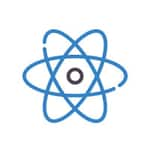
Seismology Course Details - Fees, Subjects, Syllabus, Duration, Eligibility, Career Scope
What is Seismology
Seismology in the simplest terms is defined as the study of earthquakes. In the present Times, advancement is taking over every sector rapidly. To process that advancement into an establishment, we are directly or indirectly taking up and utilising the abundance of natural resources. These natural resources are limited in nature and are bound to deplete. Sometimes this whole charade disrupts the balance of the Earth's atmosphere and results in phenomena like earthquakes.
Seismology is that branch of geophysics which is concerned with everything related to earthquakes, including its cause, prevention, origin, aftermath etc. Pursuing a career out of seismology will not only be beneficial to students but also contribute a great deal in the research attribute to decipher, anticipate and, measure the impact of an earthquake.
This resolution will be useful in generating a capable-approach to earthquake-resistance practices. Students wanting to take up a career in seismology can pursue a postgraduate degree of Masters in technology from recognised institutes like IITs.
Eligibility Criteria (UG & PG) of Seismology
The basic requirement for entry into any Engineering college for Seismology course is almost the same across all institutions. There are certain mandatory terms that are required to be followed.
Eligibility criteria for Undergraduate seismology Course
Effective completion of class 12th as part of the non-medical stream from a recognised board with subjects such as physics, chemistry, and mathematics.
40-50 percent is the minimum aggregate mark needed to appear for the entrance examinations.
For seismology courses, undergraduate degrees vary from B.sc to B.E. and B.Tech. The topics therefore oscillate between PCM and geology.
Some universities are subject to an entrance test and any prospective applicant is expected to meet the minimum cut-off prior to the start of the admission process.
Eligibility criteria for postgraduate seismology courses
For admission to courses such as M.Tech, M.Sc. Applicants should have obtained a bachelor's degree from a recognised institution in the line required, along with ME.
In the bachelor's degree with mathematics, geology and other related subjects, candidates should have scored at least 50 percent overall.
State-level and national level entrance exams for aspiring candidates are held annually. Some of these admissions have similar requirements for eligibility across all universities.
Most universities often make it obligatory after the acceptance of the entrance examination for the applicant to appear for a personal interview.
Seismology course entrance exam
1. JEE Main and JEE Advanced
The Joint Entrance Test is a test carried out at the national level to obtain admission to different courses in undergraduate engineering and architecture.
2. GATE
Graduate Aptitude Test In Engineering is a popular national level test conducted annually to test engineering aptitude of individuals who want to gain admission to postgraduate engineering courses like seismology. In September, the applications usually begin.
Scope of Seismology in India and Abroad
Pursuing a course in seismology moves toward a plethora of scope because this specialisation in geophysics is a branch of applied Sciences pertaining to natural environment phenomena.
There are a wide number of National International Organisations constantly researching and developing studies related to the Earth's surface.
The scope of pursuing this course expands a great deal to foreign countries where natural phenomena like earthquakes are more frequent.
This course is greatly suitable for candidates who have an interest in finding data about earth surface like seismic sensors and natural resource deposits under land in the sea region.
Not only this but the candidates pursuing this course also develop highly specialised knowledge in other subjects of Applied Sciences like sedimentology, hydrogeology, and geochemistry which helps in further widening the scope of this course as well as increasing its popularity among people.
Course Subjects
The subjects taught under seismology are highly related to subjects taught under earthquake engineering. Sometimes the subjects vary from one university to another, but the core subjects remain the same.
These subjects are a perfect blend of Technical and scientific as well as theoretical and practical knowledge.
Some of the major elective start under seismology are given as follows:
Seismological Modelling And Simulation
Vulnerability And Risk Analysis
numerical Methods Of Dynamic Systems
Ground Shaking Hazard
Evaluation And Retrofitting Of Structures
Advance Seismic Microzonation
systematic Disaster Mitigation And Management
Ground Failure Hazard
Earthquake Precursors And Early Warning System
Information And Model Testing Techniques
Strong Motion Seismology
Ground Improvement Techniques
Careers in Seismology
There is a wide potential growth in seismology which has opened the doors of the career path of students pursuing this branch of geophysics.
Students can opt for diverse career choices because along with seismology candidates pursuing geophysics and geosciences have exposure and knowledge of other related subjects like Oceanography, mineral and mining.
The study of this subject is also beneficial in providing the candidates with the change of working in various Laboratories, institutions, government Ministries, as well as international organisations.
Upcoming trends
Trends are steadily revised and updated in the environment according to the nature of the course. Regarding seismology, one of the major upcoming trends that have been bulging lately is Artificial Intelligence. This trend is being used as a crucial statistical tool in determining the dynamics of the earthquake.
It is because artificial intelligence is a highly-skilled tool in accurate anticipation of this phenomenon. This tool is being coupled with various other trends to enable advanced forecasting and preparing of such calamities. Some of the Other Trends are as follows:
Sustainable development
Microzonation
Artificial Intelligence
Job Profiles and Top Recruiters
Since seismology holistically deals with studying about phenomena taking place inside the Earth's crust, the major part of the work revolves around researching.
However, this research line may vary from one job profile to another and one company to another.
In the same industry of seismology, there are many roles available like attending conferences and publishing the findings, scrounging natural resource deposits under the Earth's surface, evaluating seismic stations and developing early warning mechanisms.
Candidates can choose their work line according to their expertise and interest.
Candidates also almost always have the option of getting into Technical content writing about geophysics and geoscience as well as work as a professor or a lecturer and teach subjects like environmental science, seismology, geology, mathematics, geosciences etc. Some job profiles offered by few known brands and companies are mentioned below:
Some Job profiles under Seismology career include-
S. No. | Job profile | Job description |
1. | The major job description of an Ecologist includes the study influence of different kinds of the environment on ecosystems and establishing cause and effect relationships. | |
2. | Environmental scientist | The job description of an environmental scientist encompasses a collection of data after conducting various laboratory tests. |
3. | Geological oceanographer | The job role of a geological oceanographer includes implying theories of Science and Maths to study the relationships between atmosphere, biosphere, freshwater, and seawater etc. |
4. | Geographer | The study of a geographer includes the division of Earth and its structure and characteristics concerning physical occupancy, culture, region, and politics. |
5. | Seismologist | The main job description of a seismologist is to develop probabilistic forecasting considering the magnitude, time and territory of the earthquakes comprehensively. |
6. | Geoscientist | The job of a geoscientist includes conducting a systematic research plan to study the after-effects of unprecedented earthquake hazards in various regions. |
7. | Earthquake engineer | The main job role of an earthquake engineer is to provide appropriate structure to the earthquake-resistant environment with the help of gathered research findings and other data. |
Top recruiters
The subject study of seismology usually deals with the study of earthquakes or the crust of the Earth and the phenomenon taking place there, which is why the major scope lies in Coal, Petroleum and mining agencies and other companies working towards the development in the environment sector.
Government Agencies like the National Centre of seismology and ministry of earth sciences are also constantly looking for researchers and seismologists to develop studies.
Another main profession after pursuing this course could be teaching earthquake engineering because of the relatedness of the subjects. Following are some of the companies recruiting graduates and postgraduates in seismology actively.
Ministry of earth sciences
National centre of seismology
Alphageo India Ltd.
RamTech Software Solutions
NISAR
Geological Survey of India
Coal India and mineral exploration Limited
Oil and natural gas Commission
Minerals and metals Trading Corporation
Average Salary
The average salaries for various job profiles are mentioned below:
S. No. | Job profiles | Average Annual salary |
1. | Ecologist | Rs. 6-10 lakhs p.a. (Approx.) |
2. | Environmental scientist | Rs. 5-8 lakhs p.a. (Approx.) |
3. | Geological oceanographer | Rs. 4-5 lakhs p.a. (Approx.) |
4. | Geographer | Rs. 10-12 lakhs p.a. (Approx.) |
5. | Seismologist | Rs. 8-10 lakhs p.a. (Approx.) |
6. | Geoscientist | Rs. 6-7 lakhs p.a. (Approx.) |
7. | Earthquake engineer | Rs. 10-12 lakhs p.a. (Approx.) |
**The salary figures mentioned anywhere in this article is just for reference purposes. Please treat them as such. Actual salaries may vary depending on respective candidates, employer, job location and numerous other factors.
Required Skillset for Seismology
The skills required for pursuing a career in seismology are quite diverse. The candidate should have analytical skills which are required in categorising the aspects particularly related to earthquake and review them with regards to the predetermined theories as well as find new ones.
Candidates should also have a thorough scientific knowledge required in writing reports for R&D presentation. Communication skills are also required to educate people about the study findings in an interpretable manner. The basic skills required are, however, categorised into the following terms:
Research and Development: Candidates pursuing seismology must have a knack for digging deeper to improve and constantly revise the conventional approaches towards these phenomena which is why research and development skills are required as a crucial element of seismology.
Technical skills: Aspirants must possess technical skills in any branch of engineering since that is what the entire process depends upon. Without understanding the know-how behind naturally occurring things, it is impossible to study any subject further.
Analytical skills: The quest of digging deeper in any subject does not just end at researching but also involves a great deal of critical evaluation and testing the finding against every theory. Hence, analytical skills are indispensable from the study of seismology.
Course Curriculum for Seismology
The curriculum for Seismology course differs across all institutions. A variety of subjects are taught under this course as it is a combination of technical and scientific knowledge.
As we know, seismology is a part of a larger branch of Applied Sciences called geophysics, and any specialisation in this course can be pursued only with a doctorate.
At undergraduate and postgraduate level this course comes under the umbrella branch extending up to two or four years respectively.
The curriculum is divided subject-wise into electives like seismology, Atmospheric Studies, Oceanography, Mantel studies, etc.
Frequently Asked Questions (FAQs)
Question: Which degree do I have to pursue to take up a career in seismology?
Answer :
To pursue a career in seismology a degree in Mathematics, Geology, Geosciences, Geophysics, and Computer Science can be pursued at both graduate, and postgraduate levels and seismology can be taken up as Ph.D. to pursue a specialisation. Some universities like IIT have also introduced specific courses on Seismology.
Question: What all entrance exams can a person who wants to take up ceramic engineering as a course take?
Answer :
JEE Main and Advanced
GATE
These are the two entrance exams one can take if they want to take ceramic engineering as a course.
Question: How many years will it take to complete the Seismology course?
Answer :
Any engineering course takes up to a minimum of 4 years for a B.Tech. Degree and for a Master's Degree, integrated programs for 5 years have been launched in recent times.
Question: What is the average starting salary of a seismologist?
Answer :
The average starting salary of a seismologist can differ from one job profile to another, but as per a tentative idea, it should range somewhere between INR 6 lacs to 7 lacs per annum.
Question: How is Seismology different from earthquake engineering?
Answer :
The basic difference between seismology and earthquake engineering is that seismology deals with the study of earthquakes and its magnitude, tremors, locations, date and time whereas earthquake engineering focuses on designing and creating earthquake-resistant structures in the environment.
Seismology is more scientific in nature, and earthquake engineering is more technical.
Questions related to Seismology
how the job roles be in seismology? I mean are jobs be like how earth quake occurres or research after disaster how will jobs will be
Hello Aspirant,
To secure a job as a seismologist you must posses a 10+2 education with science stream that is physics, chemistry and mathematics followed by undergraduate and post graduate degrees in seismology. The main aspect of your job as a seismologist / earth Scientist is to locate the source, magnitude and nature of earthquake. You might also be required to study the after effects of the earthquake such as tsunamis and landslides. You may also be responsible of monitoring active volcanoes for tremors, cracks and subsequent eruption. However many work as reaserch assistants and professors as well. Hope this helps and Good luck.


 Answer later
Answer later




















